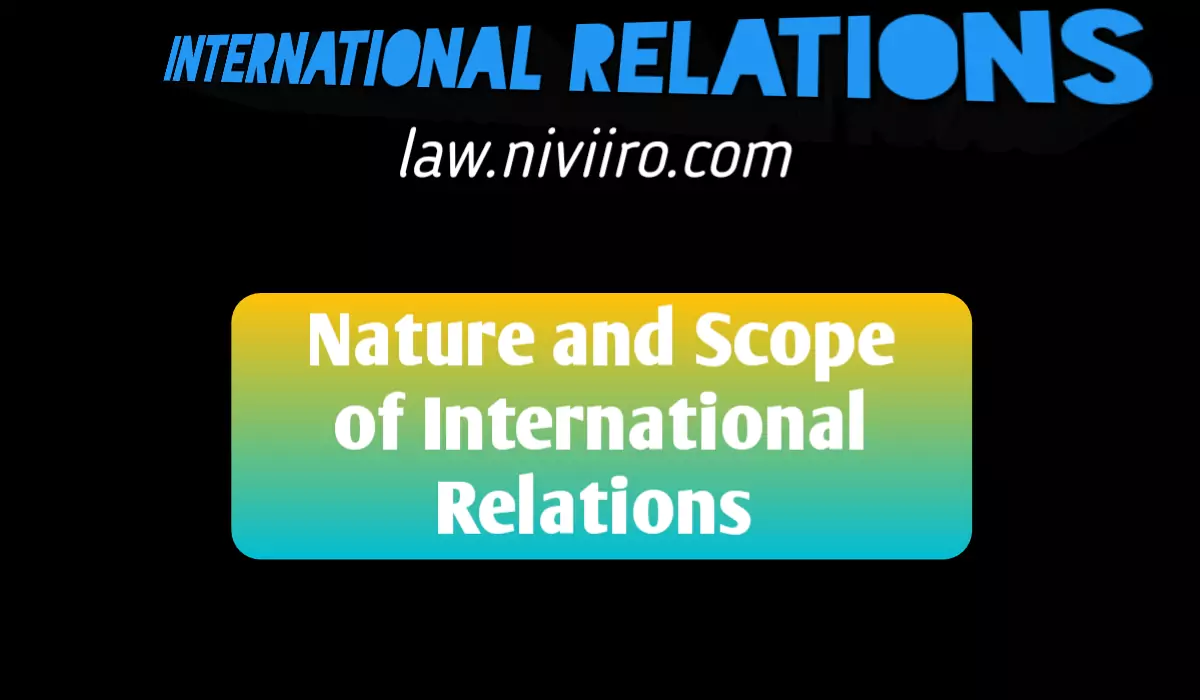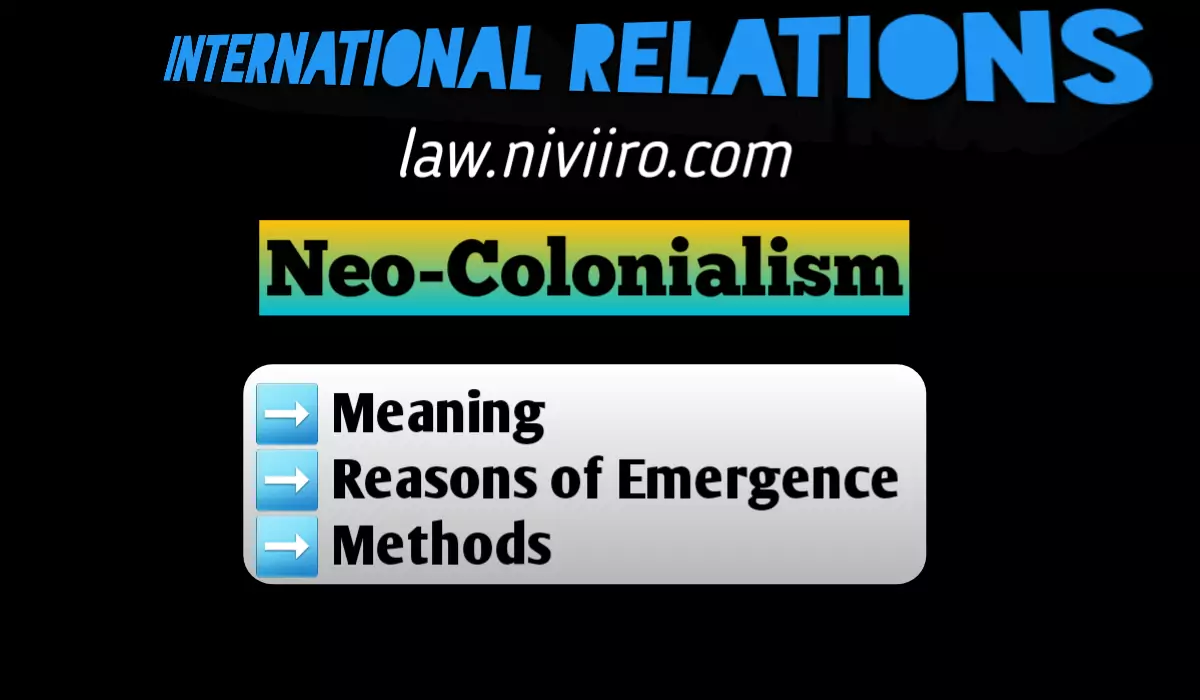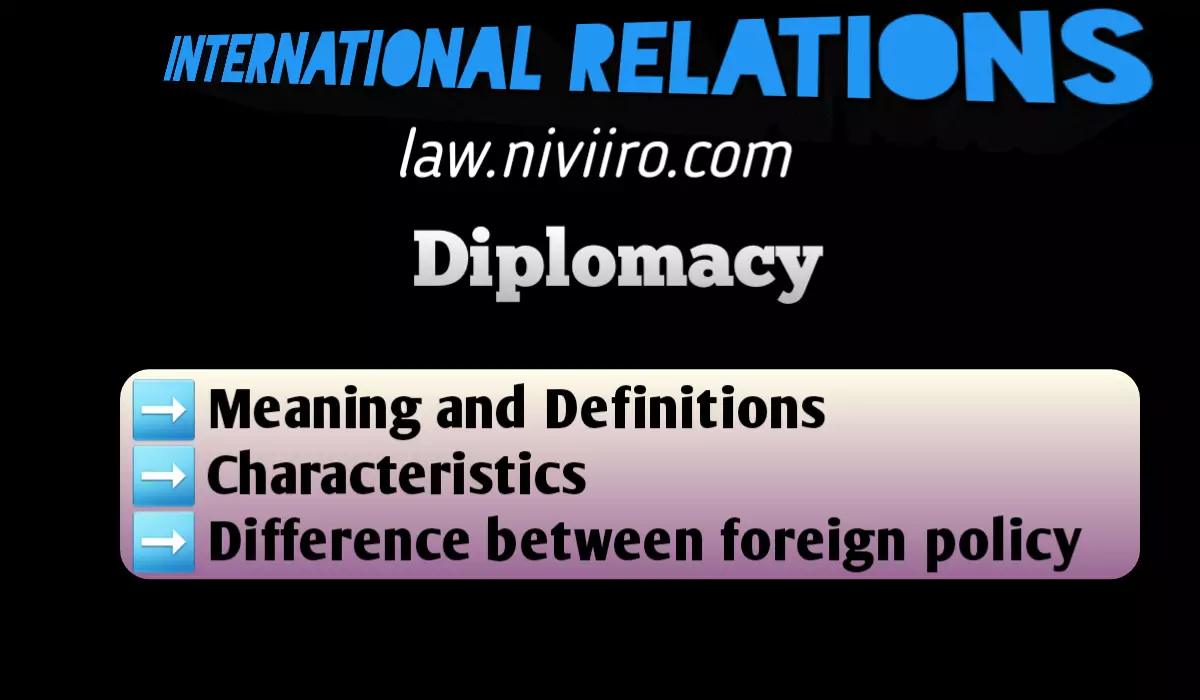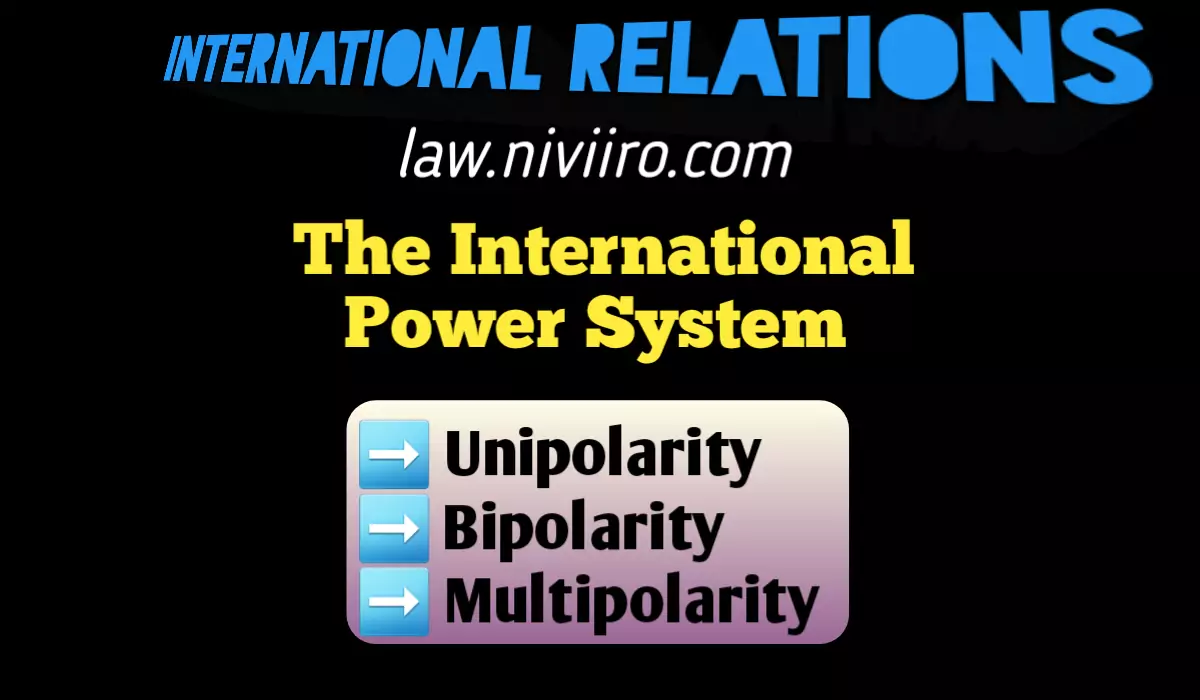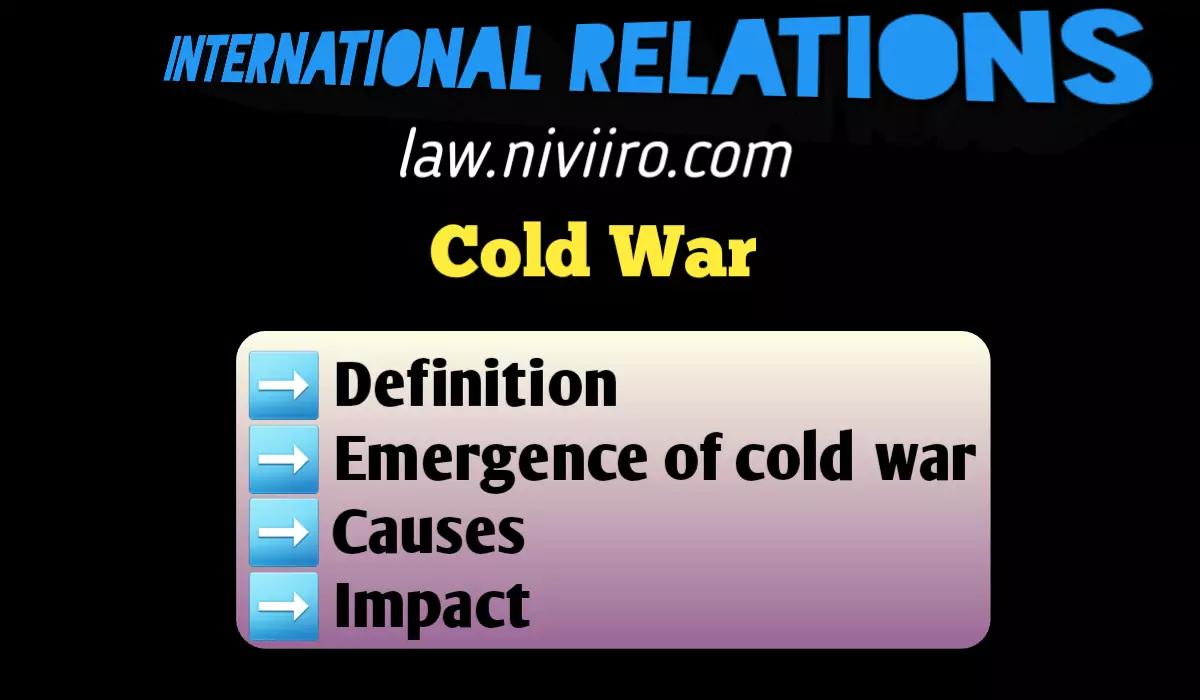Nature and scope of International Relations – The study of interactions between various nations, international organisations, non-state actors, and transnational phenomena is the main focus of the large area of international relations (IR). It includes a broad range of issues and worries, such as political, economic, social, and cultural elements that affect how different actors in the international system interact with one another.
Nature of International Relations
The nature of a subject refers to the characteristics of that subject. In that sense, the natures of International relations are in the following –
- Struggle for Power | Nature and scope of International Relations
International politics, in Morgenthau’s view, is a struggle for dominance. Power is the method of advancing the national interest, as I’ve already stated. Power politics are hence the primary subject of IR.
- As an Interdisciplinary Subject
The study of social science is always interdisciplinary. Another interdisciplinary area of study is international relations, which connects several social science fields like history, economics, political science, philosophy, geography, and culture.
- National Interest and power are the core of IR | Nature and scope of International Relations
The primary objective of the state is the defence of national interests. With this objective in mind, the state interacts with other states so that its national strength can serve its interests as a whole. Hence, it can be seen that the basic concerns of IR are those of national interest and the function of national power in achieving those interests.
- Continuous Interaction among Nation States
In the modern world, no state is self-sufficient. Each state depends on the others. So, there is a requirement for connectivity, which is only made feasible by interactions between various states.
- State is the primary actor in IR | Nature and scope of International Relations
The State is the lone and unifying actor in the world of politics. International relations have historically been dominated by the state. International relations also looks at how states act as a key determinant of global politics.
- Analytical and Empirical Study for Theory Building
The development of theories in international relations also includes analytical and empirical methods.
- Changing nature of International relations | Nature and scope of International Relations
The nature of global international relations is dynamic. An in-depth examination of world politics is what is known as international relations. Global politics underwent a significant change during the post-World War II era. The Warsaw Pact, headed by the USSR, and NATO, led by the USA, served as the two poles of world affairs.
Once the Soviet Union fell apart in the 1990s, there was a sort of unipolarity in global politics. Yet, a number of South American nations, including Brazil, and several economically developing Asian nations, including China, India, Singapore, and Vietnam, are all having a big impact on global politics. So, it is evident that world politics is once again becoming multipolar.
Then growing importance of non-state actors like NGO (Non-Governmental Organization), MNC (Multinational Companies) etc, are also discussed in the field of International relations.
Scope of International Relations
The instrument of international relations is the nternational community. Interstate relations have seen a significant transformation as a result of the unfathomable developments in the worldwide community during the past 70 years. Since the 1930s, the study of international relations has been taught separately in schools. Because of this, it is impossible to permanently define the boundaries of international relations. You already have a general understanding of the extent of international relations from the examination of their nature.
The scope of international relations are mentioned below-
- Study of Foreign Policy | Nature and scope of International Relations
Foreign policy is a significant topic in international relations. In the past, kings, prime ministers, or a select few people actively participated in setting foreign policy. Today, the creation of foreign policy involves not only politicians but also the legislature, a large number of citizens, and other stakeholders. International relations play a significant role in the condition of affairs or ideology in foreign policy as well as the ideological concerns of the respective regimes.
- Study of Nation States
Different states do not have the same ethnic makeup, geographic location, historical past, religion, or philosophies. And as a result of all these variations, there are variations in how various states relate to one another. Therefore, a thorough discussion of these disparities in international relations is required. His response revolves around international relations when the social environment changes.
- Study of the behavior of States in International Politics | Nature and scope of International Relations
Just as a country creates friendly contacts for the benefit of its overall development, it becomes a topic of international relations; similarly, when there is an interest conflict, animosity arises among its citizens, and that, too, becomes a component of international relations. As a result, both cooperation and conflict are a part of international relations. Making alliances and handling crises are important aspects of international affairs.
- International Organizations | Nature and scope of International Relations
No less significant is the role that national and multinational organisations play in international relations. The US Congress of Industrial Organizations, the US Federation of Labor, the French Labor Organization, and the Women’s International Democratic Federation Participation Organization all have members from many nations.
The Coalition and its numerous specialist bodies, including UNESCO, the International Labor Organization, and the World Health Organization, involve non-governmental organisations in their work as well. Thus, all national and international organisations are discussed in international relations.
5. Role of People in International politics
The significance of the general public and public opinion is likewise growing quickly on a global scale. The end of imperialism—from an international, disarmament-focused, political, and economic perspective—has sparked protests and movements among people in various nations. People from several societies, including American scientists and intellectuals, have protested the Vietnam War. So, opinions about the state of the world fall under the category of international relations.
- Role of the Third World
In recent world politics, the third emergence has brought significant qualitative change. Third generation people make up the majority of humanity. 101 nations took part in the Eighth Non-Alignment Conference in 1986. It is crucial because non-aligned nations are playing a larger role in developing new international arrangements, reducing tensions between the East and the West, disarming, ending colonial control, etc. As a result, international relations discussions should include the third world’s participation in global politics.
International relations now covers a wider range of topics, many of which are dynamic in character. International relations today covers all domestic policies that influence or may influence other countries.In the past, these issues were not related to international relations. Therefore, it can be said that the scope of international relations has expanded.
- Role of Non-State Actors in International Field
The operations of the state and its official institutions are merely one aspect of international relations’ content. The state is not the only participant in the global society that is active. International relations are impacted by the actions of numerous non-state entities.
Examples of non-state actors in international relations include multinational corporations (MNCs), the European Economic Community, the Council for Mutual Economic Assistance, NATO, SEATO, the WARSAW PACT, ASEAN, the Organization of American States, various terrorist organisations, and religious organisations.
- Question of War and Peace | | Nature and scope of International Relations
The desire to prevent war between nations is still a topic of discussion in international relations today. What was once utopian is now progressively becoming a reality. The major goal of the United Nations’ founding was to maintain universal peace and security. To foster an environment of peace and security, major international powers and regional leaders frequently exchange ideas. There are more and more contacts of every sort for the benefit of different exchanges and the progress of globalisation in the realms of culture and other things. International relations are now centred on all of this.
- Global Environmental Issues | Nature and scope of International Relations
Environmental concerns are currently one of the most important topics in international relations. The politics of the environment in the 1970s were solely concerned with issues relating to resources. Yet starting in the 1990s, the politics of the environment centred on the problem of “Climate change,” which is a result of global warming.
To tackle this issue, the UN Framework Convention on Climate Change (FCCC), Kyoto Protocol in 1997, the Paris Agreement on climate change, etc, have launched. So, every state in the globe is impacted by global environmental challenges. All states are making every effort to conserve this beautiful globe by reducing their use of greenhouse gases, which is why it is regarded as the most crucial aspect of international relations.
Related Post | Nature and scope of International Relations
Nature of International Relations ?
Struggle for Power
International politics, in Morgenthau’s view, is a struggle for dominance. Power is the method of advancing the national interest, as I’ve already stated. Power politics are hence the primary subject of IR.
As an Interdisciplinary Subject
The study of social science is always interdisciplinary. Another interdisciplinary area of study is international relations, which connects several social sci…….
Scope of International Relations ?
Study of Foreign Policy
Foreign policy is a significant topic in international relations. In the past, kings, prime ministers, or a select few people actively participated in setting foreign policy. Today, the creation of foreign policy involves not only politicians but also the legislature, a large number of citizens, and other stakeholders. International relations play a significant role in the condition of affairs or ideology in foreign policy as well as the ideological concerns of the respective regimes.
Study of Nation States
Different states do not have the same ethnic makeup, geographic location, historical past, religion, or philosophies. And as a result of all these variations, there are variations in how various states relate to one another. Therefore, a thorough discussion of these disparities in international relations is required. His response revolves around international relations when the social environment changes.
Reference Books | Nature and scope of International Relations
- An Introduction to International Relations by John Baylis, Steve Smith and Patricia Owens.
- J.C. Johari – International Politics
- International Relations in the 21st Century by Pant
- Raymond Aron – Peace and war a theory of International Relations
- H.J. Morgantheau – Politics among Nations
- Prem Arora – International Relations and foreign policy













